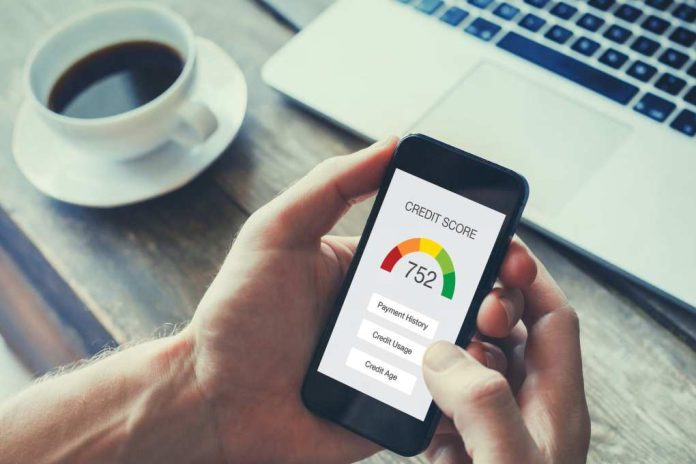
Want to learn when to repair credit? You’ve come to the right place. Today, we’re going to help you identify when credit repair can help – and when you’re better off taking a different approach. We’ll also provide tips to help you along this journey, avoiding common pitfalls we’ve seen people make.
But before we fully unpack when credit repair makes sense, let’s provide a brief overview of what this process looks like.
What is Credit Repair Exactly?
Credit repair is the process of addressing and correcting errors or negative items on your credit report in an effort to improve your credit score.
There are a variety of ways to go about credit repair, including disputing errors with credit reporting agencies, paying off outstanding debts, and taking out new credit accounts responsibly in order to demonstrate your creditworthiness.
Some companies also offer credit repair services for a fee, which can include working with creditors to negotiate payment plans or removing negative items from your credit report. However, it’s important to be aware that not all credit repair companies are legitimate, and some may engage in practices that are actually illegal.
If you’re considering working with a credit repair company, it’s a good idea to do some research and make sure you choose one that is reputable and has a good track record of helping people improve their credit. But you may still be wondering when to repair credit. Keep reading – we’ll highlight a few situations in which it may be worthwhile.
When to Repair Credit
First, realize that credit repair is something anyone can do – whether you have a good or bad credit score. Thus, there’s never a bad time to start repairing your credit. Why is credit repair important though? Simple – you get better interest rates, unlock more financial opportunities, and enjoy peace of mind.
With that said, there are definitely certain instances where credit repair can be more beneficial than others. So – with that said, here are some of the best uses for credit repair services:
- If you have errors or mistakes on your credit report: These can include incorrect information about your credit accounts, debts, or payment history. Disputing these errors with credit reporting agencies can help to improve your credit score.
- If you have unpaid debts or accounts in collections: Paying off these debts can help to improve your credit score over time. You can learn more about debt consolidation vs credit repair in our blog. Or, explore our guide on how to remove a bankruptcy from your credit score early.
- If you have a limited credit history: Building a credit history by taking out new credit accounts responsibly and making on-time payments can help to improve your credit score.
- If you have a history of late or missed payments: Making a concerted effort to pay your bills on time going forward can help to improve your credit score.
- If you have a high debt-to-credit ratio: Lowering your balances and reducing the amount of credit you are using can help to improve your credit score.
It’s important to note that credit repair is not a quick fix, and it can take time for your credit score to improve. However, by taking steps to address negative items on your credit report and demonstrating good credit behavior, you can work to improve your credit over time.
With that said, are there any instances in which credit repair is not worth it?
When Not to Repair Credit
There are a few instances where credit repair may not be worth it:
- If you have a very low credit score: If your credit score is already very low, it may be difficult to make significant improvements through credit repair alone. In this case, it may be more effective to focus on building a strong credit history from scratch rather than trying to repair your existing credit.
- If you have a lot of negative items on your credit report that are accurate: If you have a history of late payments or unpaid debts that are accurately reflected on your credit report, it may be difficult to remove these items through credit repair. In this case, it may be more effective to focus on paying off your debts and demonstrating good credit behavior going forward. For example, credit repair cannot remove collections, credit repair cannot remove student loans, and credit repair cannot remove inquiries – in the event these grievances are accurate. The key word here is accurate. Credit repair can only help remove inaccurate items.
- If you are being targeted by scammers: There are unfortunately a lot of scams out there that claim to be able to repair your credit, but which are actually just trying to steal your money. If you suspect that you are being targeted by a credit repair scam, it is best to avoid these companies and seek out legitimate resources instead.
- If you don’t have the time or resources to commit to credit repair: Credit repair can be a time-consuming and resource-intensive process, and it may not be worth it if you don’t have the time or energy to devote to it. In this case, it may be more effective to focus on building good credit habits going forward rather than trying to repair past mistakes
Tips for Getting Started With Credit Repair
Now that you know when to repair credit, how can you get started? Here are a few tips:
- Get a copy of your credit report: You can request a free copy of your credit report from each of the three major credit reporting agencies (Equifax, Experian, and TransUnion) once per year. Review your credit report carefully to identify any errors or negative items that may be affecting your credit score.
- Dispute errors: If you find errors on your credit report, you can dispute them with the credit reporting agency. Be sure to provide any documentation you have to support your dispute, and be persistent if necessary.
- Pay off outstanding debts: Paying off debts that are in collections or that have high balances can help to improve your credit score over time. Consider setting up a payment plan with your creditors if you are having trouble paying off your debts in full.
- Take out new credit responsibly: If you have a limited credit history, taking out new credit accounts responsibly and making on-time payments can help to improve your credit score. Just be sure not to take on more credit than you can handle.
- Avoid scams: There are unfortunately a lot of scams out there that claim to be able to repair your credit, but which are actually just trying to steal your money. Be wary of any company that asks you to pay upfront fees, guarantees to remove negative items from your credit report, or asks for your personal information.
- Consider working with a reputable credit repair company: If you are having trouble improving your credit on your own, you may want to consider working with a reputable credit repair company. Just be sure to do your research and choose a company that has a good track record and is transparent about its services and fees.
Wrapping Up Our Conversation on When to Repair Credit
That concludes our article on when to repair credit. In summary, there is no best time to begin repairing your credit score. The sooner you do it, the better. Even if you just begin by improving your credit habits, that good behavior can lead to serious changes down the line. You should start working on your credit as soon as you can.
Otherwise, it’s worth looking into alternatives – such as credit repair vs chapter 7, credit repair vs credit sweep, credit repair vs credit restoration, or credit repair vs credit counseling.
Want to learn more about credit repair? We have articles on credit repair for low income families, credit repair for veterans, whether or not credit repair will work for you, and how to find legit credit repair companies.
















